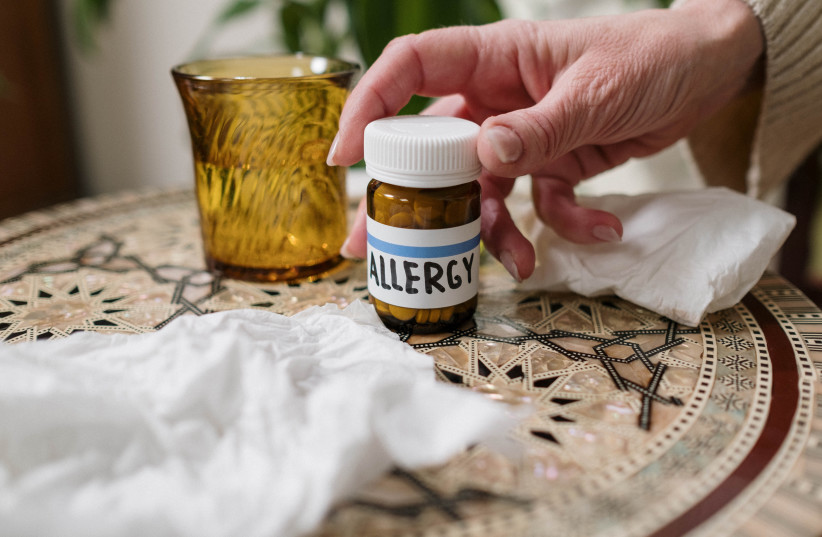Spring is here, and in addition to the beautiful flowers, the air is filled with pollen from cypress, grass, sage, olive and pecan trees that cause many people to have annoying allergies that include tingling, a runny nose, itching and more.
So, besides the lovely natural surroundings and the relatively pleasant weather, there are some less desirable effects that come along with the spring season.
Allergy symptoms which are categorized as hay fever
At least 20% of Israelis are known to have hay fever, and symptoms include runny nose, cough, red/itchy eyes, burning/itchy throat, headache, itchy skin or a rash.
In severe cases, hoarseness and severe shortness of breath can develop, and some people may experience asthma attacks. On days when the air is also dry, these symptoms may worsen.

Stings and skin irritations
Like the flowers, the insects also enjoy the spring and reproduce endlessly. Types of insects include beetles, wasps, mosquitoes, beetles, spiders and more.
These insects can sting and bite, causing skin reactions in and around the area of the bites, and when there's itching, the mere scratching may lead to a worsening of the local rash and symptoms.
Kids, who tend to itch even more than adults often have more significant symptoms and these bites can become infected. In people with a tendency to develop an allergic skin rash, or "asthma of the skin," these symptoms may worsen significantly during this period.
Are there any practical solutions?
We certainly don't want to eliminate our beautiful environment, yet we must be aware of when the spring blooms, usually between March and May, and know how to attribute certain symptoms to this season in order to make the correct diagnosis and help people get the appropriate treatment.
Regarding insects, don't wait until you and your kids are full of bites, but rather stock up in advance on insect repellent for daily use.
Also, have proper and complete nets on the windows, devices to repel insects (electrical or other) in the bedrooms and more. In the yard, light citronella candles that repel insects, and if you're brave, you can eat fresh garlic which is known to repel mosquitoes.
Also, use mosquito repellent preparations on the surface of the skin.
If you develop symptoms that could correspond to a seasonal allergy, you must contact your doctor in order for a diagnosis and to receive the right treatment, either an ointment for the skin or drops for your eyes or anti-allergy medicines taken orally.
If necessary, and depending on the severity of the situation, you may be referred for a consultation with an allergy specialist to perform other tests and to receive additional treatments.
Since during this period the symptoms appear due to environmental factors and aren't actually infectious, it's very important that both the attending physician and the patients really understand the symptoms so that appropriate and effective treatment can start and unnecessary treatments and medications, like antibiotics, can be avoided.
Dr. Gal Neuman is a pediatrician and clinical pharmacologist with Maccabi health fund.
